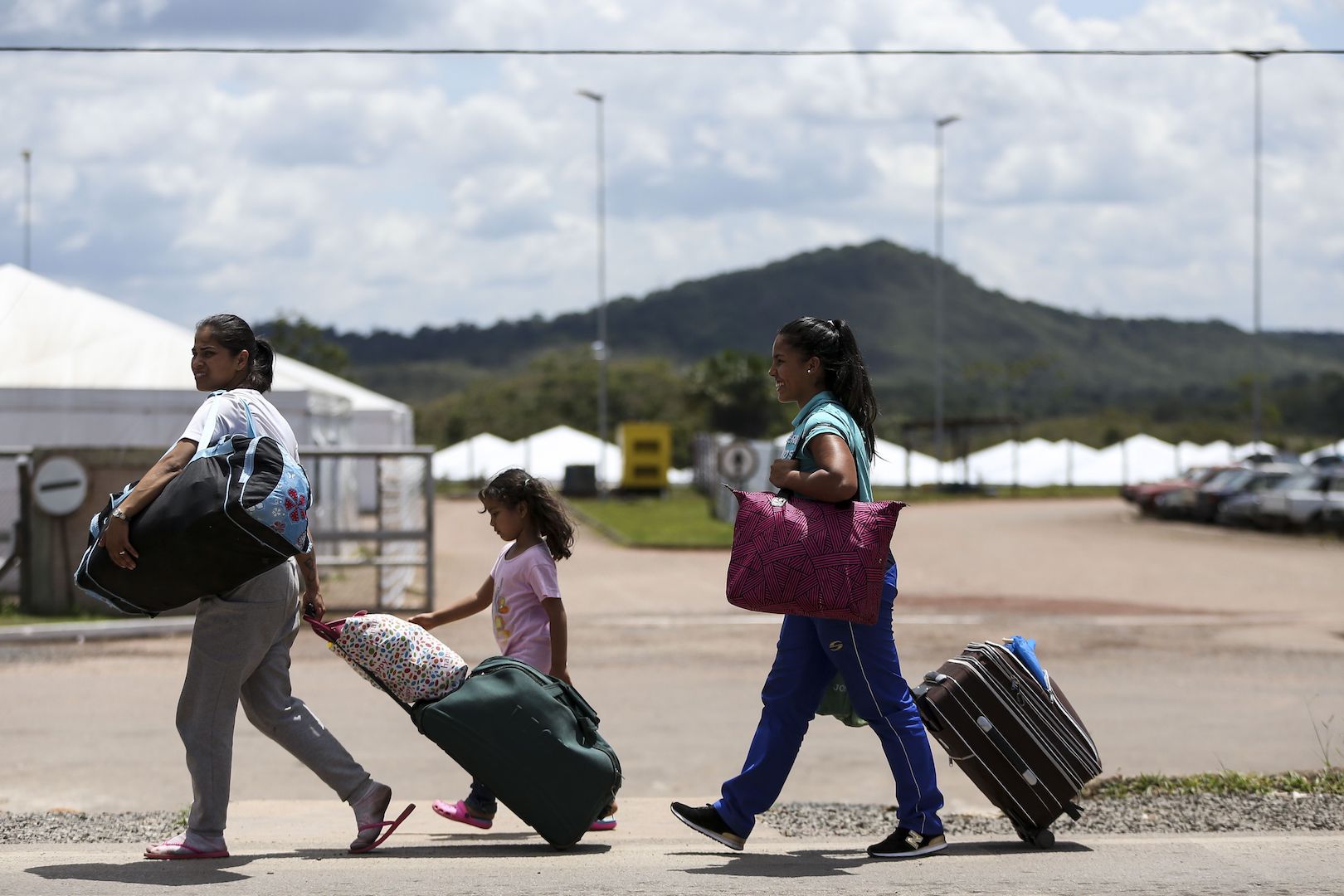RIO DE JANEIRO, BRAZIL – Brazil recorded an 88.3% drop in the number of refugees in 2021 compared to the previous year, according to data from the National Committee for Refugees (Conare).
In 2020, 26,653 were registered and in 2021, 3,093 refugees. In all, 54,004 refugees were recognized by the Committee, and about 21,000 had their registrations denied.
The country has refugees from 77 nationalities, with Venezuela in the first place accounting for 90.82% of the total cases.

The high number in 2020 occurred due to the flow of immigrants from Venezuela during the severe and widespread humanitarian crisis, recognized by CONARE. Syria, meanwhile, ranks second with 3.91%, and the Democratic Republic of Congo third, with 1.22%.
According to the co-founder of the Migration Gender and Race Institute (I-MiGRA), Sávia Cordeiro, the decrease in refugees in the country happened because of the closing of borders during the pandemic.
“The reduction in the number of refugees was basically due to the closing of borders,” he says.
This affected the entry of migrants, including refugee claimants. Even with the opening of the air border, the land border was closed for a long time. This made it difficult for people in vulnerable situations, including refugee claimants, to enter, especially on the northern border.
Even when the border was reopened, there was difficulty in 2021 for the regularization of documentation.
The states with the highest number of refugees in 2021 were Roraima (1,445), Amazonas (588), Rio de Janeiro (368), and São Paulo (251). In 2020, Roraima (18,896), the Federal District (3,331), Amazonas (2,282) and São Paulo (1,067).
Savia explains that most immigrants, especially Venezuelans, prefer to stay in the North region close to the border. She also called attention to the state of São Paulo, which is a place with more significant potential for work.
Due to the drop in the number of refugees, after five years in constant growth, Dorival Guimarães, professor of International Law at IBMEC, analyzes the expectation of migration and displacement in 2022.
“With the decrease in pandemic rates, I believe that borders will naturally open more,” he explains.
However, fewer conflicts around the country can generate the displacement of people here. This reduction of conflicts in neighboring countries causes a smaller number of displacements.
Another point that drives these individuals away is the economic crisis, which causes these refugees to seek other countries, causing lower demand for Brazil.
Dorival pointed out that international law guarantees the individual that from the moment they are requested to CONARE to be recognized as a refugee, they cannot suffer a compulsory measure being forced to leave the country.
The principle called “non-refoulment” means that the delay in regularization by the Committee does not harm the refugee, who can have access to his work card and documentation with a temporary visa while the body is analyzing.
With information from CNN Brasil

